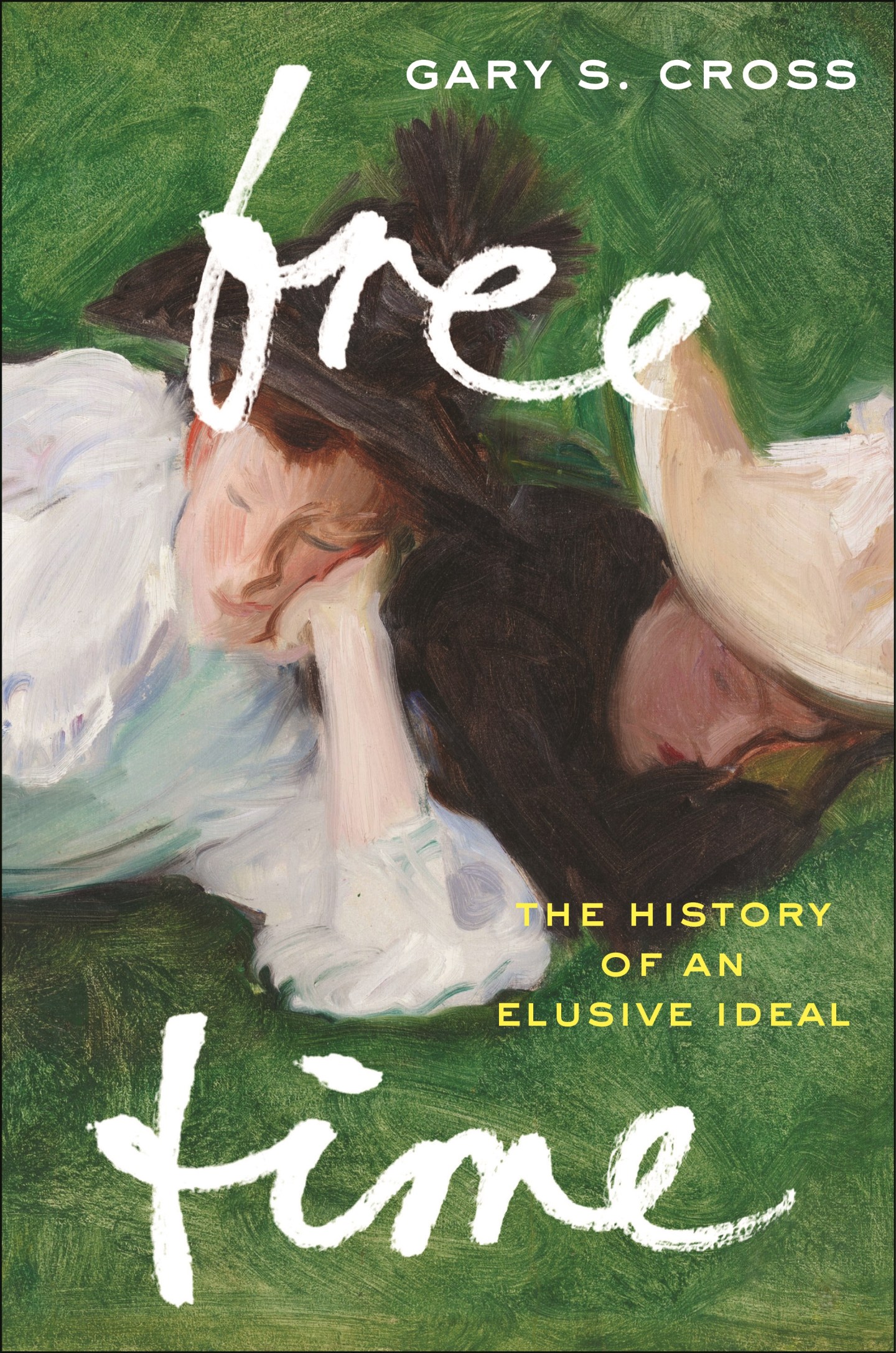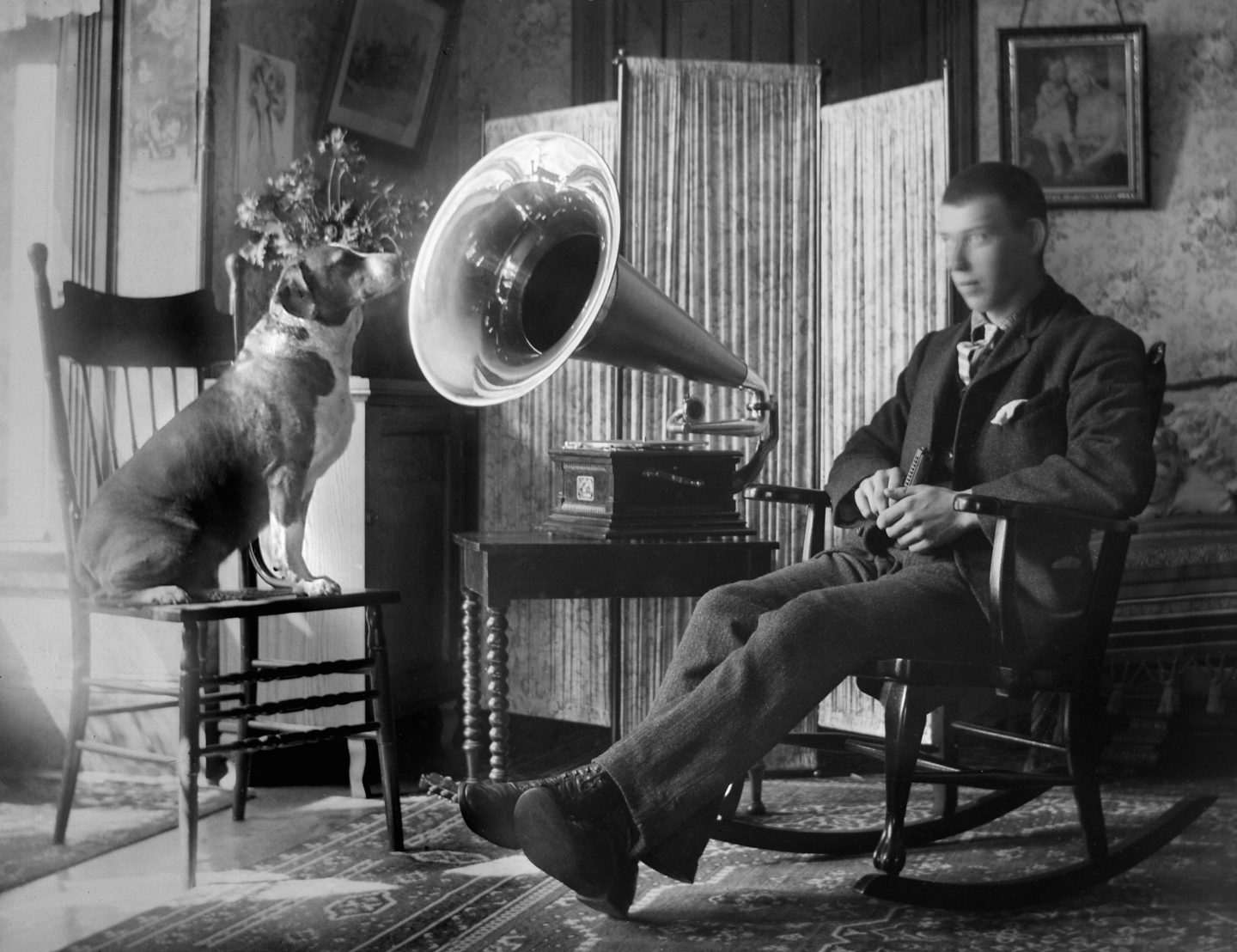It’s curious to me just how readily and quickly people have adapted to the smartphone.
I suspect a cause of this often unquestioned embrace of it is the gradual introduction of its characteristics across time, not just since the first PCs in 1981 but dating back to the introduction of TV, radio, and ultimately the phonograph.
The smartphone is the logical culmination of the principle first introduced with the phonograph: the unmediated linkage of the individual to the global. And impediments to that linkage have been eliminated in a long series of innovations from the radio to the smartphone. What has been constant is that this modern phenomenon has met a contradictory need for personal liberation from the actual world while experiencing that world “virtually.”
Ultimately, this process has created a substitute for a longing that long predates the twentieth century—a need to cultivate self and to interact socially in free time. With the electronic funnel, that longing, however, has become free of the “slowness” of traditional (and sometimes modern) aspirations. This began with the globalized sound of the phonograph but was radically extended with its successors by adding video (movie and TV); enhancing access to the global wirelessly (radio, TV, and the internet); increasing the personal and mobile (cassettes, CD devices, and computer tablets); overcoming the limits of the capsulized experience of the recording with continuous flows of sensuality (radio, TV, and the internet); and, ultimately, by bringing together the private and the global in all of their convenience with the smartphone.
We have largely embraced electronic funneling in our work and even more significantly in our play or free time without much reflection or resistance. Maybe we need to think a little more about it (without moral panic or undue nostalgia for what has been lost). A brief review may inform us about our regular disappointment with our free time and help us consider whether this funneled capitalism has contributed to why we do not have more of it.
Funneled free time: the fast and slow in perspective
The story of the internet is about far more than personal isolation in a flickering world, alien to physical life. The computer has delivered a vast range of experience and knowledge to nearly everyone. It truly annihilates space and time. It and the smartphone vastly extend access to almost everything, often without reference tools.
The internet and digital “clouds” (from about 2005) have allowed for immediate links to unfathomably large deposits of data and entertainment that formerly came only in often difficult-to-access physical recordings, books, and periodicals. From simple email and texting to social media and video teleconferencing, the digital connection helps maintain ties to family, friends, customers, and suppliers, often across great distances. This has become vital in a society as dispersed and mobile as modern America. It is far superior to the old long-distance calls that often cost a dollar a minute. During the ongoing COVID-19 pandemic, internet calls have been life or sanity savers, an essential replacement for face-to-face contact that the virus made impossible. The contact between parents and children especially has increased in recent years, even if that sometimes means the helicopter mom or dad, phoning or texting offspring daily or more.
The internet lifts social and cultural constraints on individual choice, often despite the desire of closed societies and politicians to control their populations. A decade before the internet, “futurologists” like John Naisbitt anticipated a world networked through the computer that would challenge the hierarchies of traditional power structures. Of all the forms of the funneled experience discussed above, the various forms of the internet offer the greatest challenge to any critique of the electronic funnel because of the possibility of person-to-person linkage. It has not created yet the dystopia of Orwell’s 1984.
More specifically, the digital funnel has transformed old forms of individuality and sociability. The smartphone has led to new ways for young people to define themselves and socialize. Take, for example, a perhaps surprising change: recently there has been a declining interest in sixteen-year-olds obtaining a driver’s license and using the car to display themselves and socialize with others. These uses of the car by teens had occurred in many American communities from the early 1950s to about 1990. But the culture of teens cruising down Main Street in personalized vehicles (customized and “souped up”) to show off and meet others has been challenged by the internet. The physical cruise is largely superseded by an electronic one. The personal and social needs that the cruise provided were not about to disappear, but, in ways, the internet was an improvement. Getting noticed or meeting someone is more efficient at the touch screen than at the windshield. We can all think of many other examples of this type of change resulting from the internet.
Taking a wider view, the internet can be seen as a culmination of a long transformation of free time and meanings of the individual and the social. The smartphone completes a drive that dates from early modern times. It offers a new way to realize an old urge to escape from the other in a private space, but also to experience the wider world. In the past, that escape was from the crowded one-room cottage full of people or from the public scrutiny of the ritualized festival at the village square or in the hall of the castle. Relief came perhaps in the privacy of a room of one’s own and in the exposure to the beyond through reading a book.
Today the smartphone offers far more privacy and worldly adventure. The isolation is liberating just as the virtual world at the other end of the electronic funnel is fulfilling. The funneled pleasure is an extraordinarily alluring sensory experience: fast and packed, but also private and extensive. This funnel has become part of a modern quest for freedom from the social world near us (in a physical sense) without giving up access to the social in the wider culture—a quest undertaken through the phonograph and ultimately through the internet.
Excerpted from FREE TIME: The History of an Elusive Ideal, by Gary S. Cross, published by NYU Press, 2024. New York, NY. All rights reserved.













